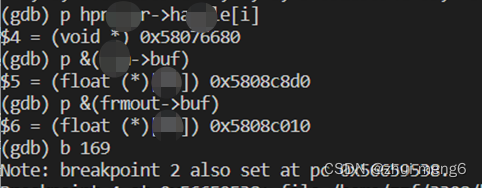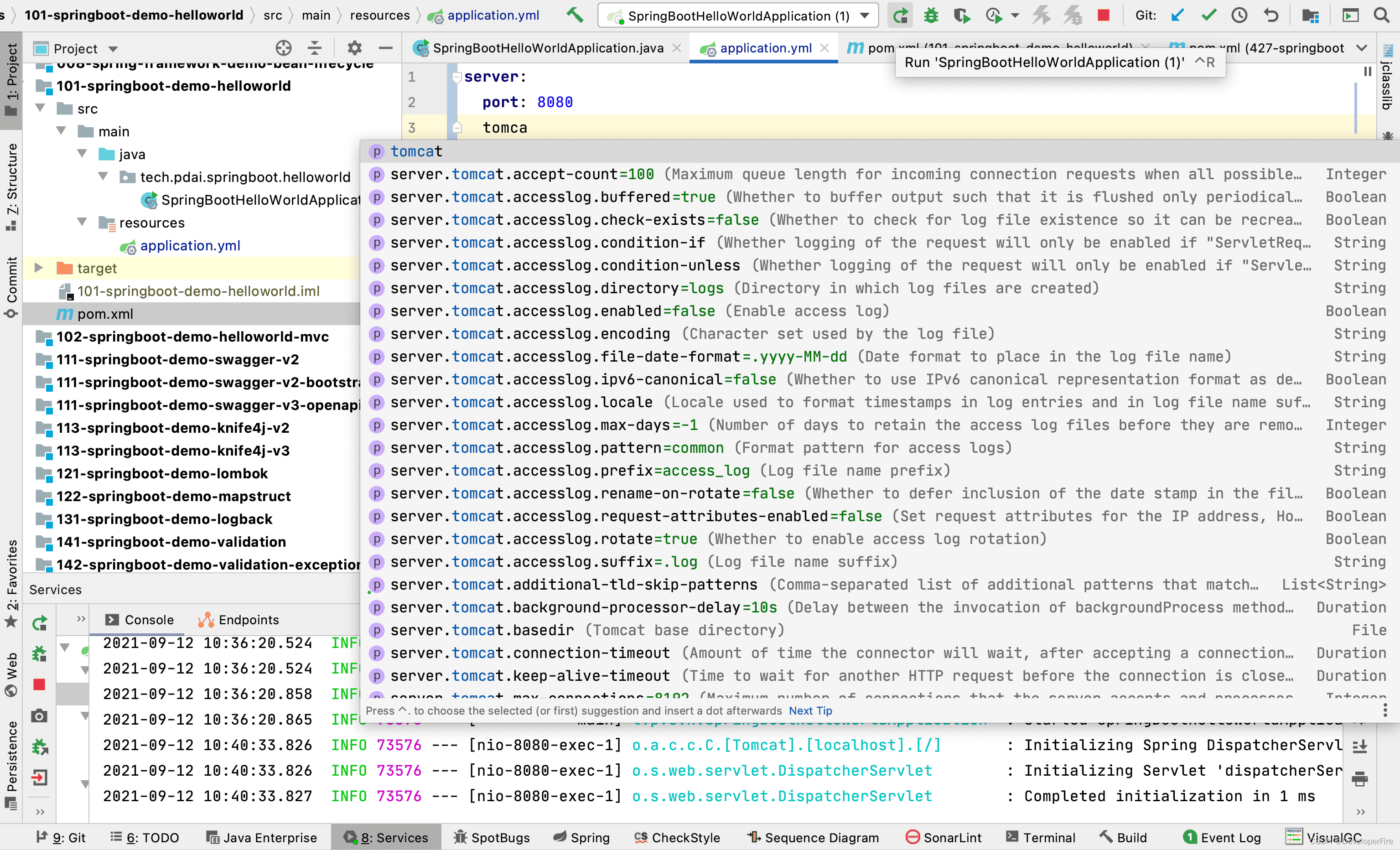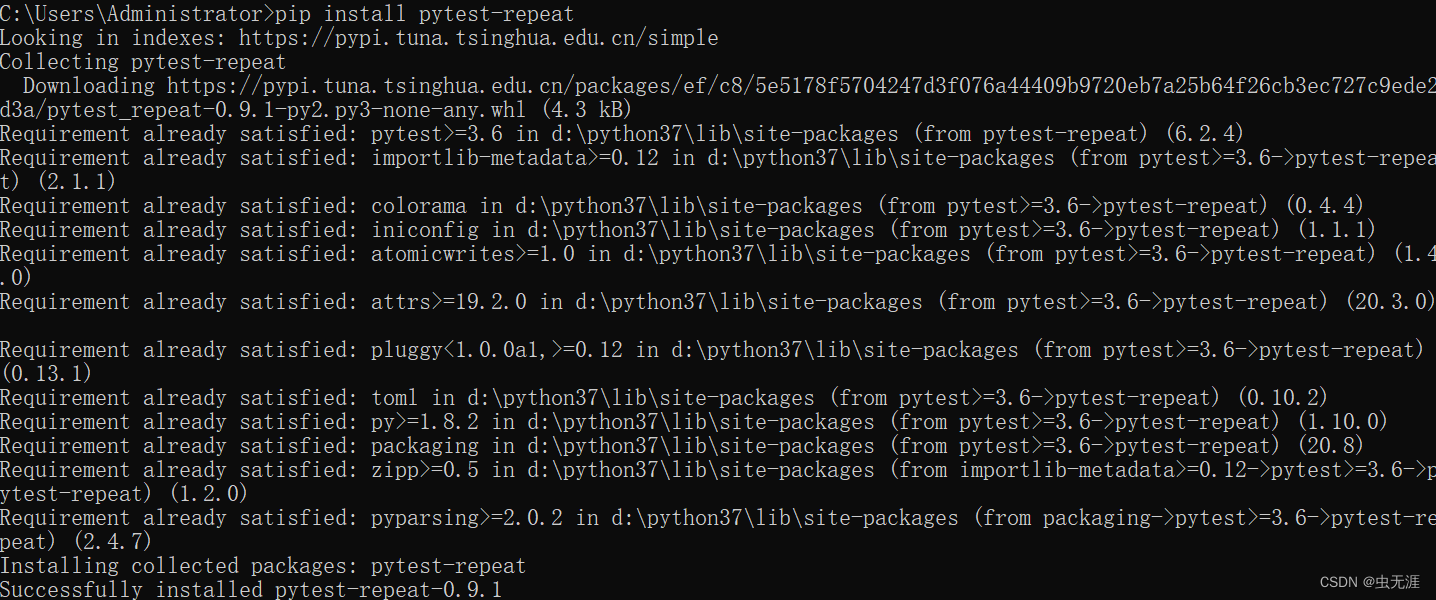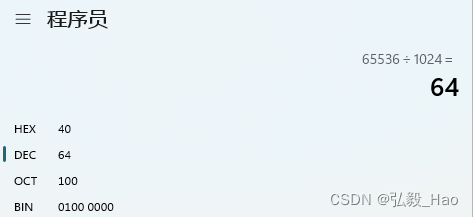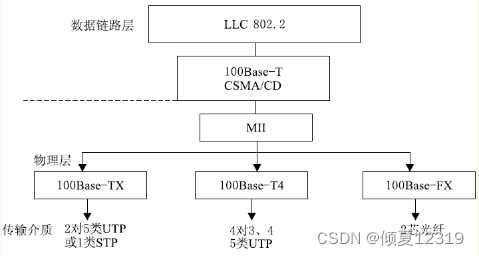工作原理
- 使用
<dependency>
<groupId>cglib</groupId>
<artifactId>cglib</artifactId>
<version>3.3.0</version>
</dependency>
对类和接口分别进行代理
- DemoService
package com.fanqiechaodan.user.service;
/**
* @author fanqiechaodan
* @Classname DemoService
* @Description
* @Date 2023/3/1 19:44
*/
public class DemoService {
public void test(){
System.out.println("==================>test");
}
}
- DemoInterface
package com.fanqiechaodan.user.service;
/**
* @author fanqiechaodan
* @Classname DemoInterface
* @Description
* @Date 2023/3/1 19:56
*/
public interface DemoInterface {
void test();
}
- Demo
package com.fanqiechaodan.user;
import com.fanqiechaodan.user.service.DemoInterface;
import com.fanqiechaodan.user.service.DemoService;
import net.sf.cglib.proxy.Callback;
import net.sf.cglib.proxy.Enhancer;
import net.sf.cglib.proxy.MethodInterceptor;
/**
* @author fanqiechaodan
* @Classname Main
* @Description
* @Date 2023/3/1 19:47
*/
public class Demo {
public static void main(String[] args) {
final DemoService target = new DemoService();
Enhancer enhancer = new Enhancer();
enhancer.setSuperclass(DemoService.class);
// 必须设置callbacks不然会出现java.lang.NullPointerException
enhancer.setCallbacks(new Callback[]{(MethodInterceptor) (o, method, objects, methodProxy) -> {
// test方法增强逻辑
if ("test".equals(method.getName())) {
System.out.println("方法执行前增强...");
Object res = method.invoke(target, objects);
System.out.println("方法执行后增强...");
return res;
}
// 其他方法正常执行
return method.invoke(target, objects);
}});
DemoService demoService = (DemoService) enhancer.create();
demoService.test();
Enhancer enhancer1 = new Enhancer();
enhancer1.setSuperclass(DemoInterface.class);
enhancer1.setCallbacks(new Callback[]{(MethodInterceptor) (o, method, objects, methodProxy) -> {
// test方法增强逻辑
if ("test".equals(method.getName())) {
System.out.println("切面逻辑...");
}
return null;
}});
DemoInterface demo = (DemoInterface) enhancer1.create();
demo.test();
}
}
代码执行前设置VM options:
-Dcglib.debugLocation=根据自己实际情况填写
运行代码是cglib就会将生成的代理类放到上面所指定的路径上.

- DemoService代理类
public class DemoService$$EnhancerByCGLIB$$1c9ab053 extends DemoService implements Factory {
// 省去不重要代码...
final void CGLIB$test$0() {
super.test();
}
public final void test() {
MethodInterceptor var10000 = this.CGLIB$CALLBACK_0;
if (var10000 == null) {
CGLIB$BIND_CALLBACKS(this);
var10000 = this.CGLIB$CALLBACK_0;
}
if (var10000 != null) {
var10000.intercept(this, CGLIB$test$0$Method, CGLIB$emptyArgs, CGLIB$test$0$Proxy);
} else {
super.test();
}
}
// 省去不重要代码...
}
- DemoInterface代理类
public class DemoInterface$$EnhancerByCGLIB$$536bfe99 implements DemoInterface, Factory {
// 省去不重要代码...
final void CGLIB$test$4() {
super.test();
}
public final void test() {
MethodInterceptor var10000 = this.CGLIB$CALLBACK_0;
if (var10000 == null) {
CGLIB$BIND_CALLBACKS(this);
var10000 = this.CGLIB$CALLBACK_0;
}
if (var10000 != null) {
var10000.intercept(this, CGLIB$test$4$Method, CGLIB$emptyArgs, CGLIB$test$4$Proxy);
} else {
super.test();
}
}
// 省去不重要代码...
}
final void CGLIB$test$0() {
super.test();
}
这个方法我们并不能直接调用,而是要通过所设置的Callback,也就是MethodInterceptor中的methodProxy来调用,methodProxy表示方法代理,假如DemoService代理对象在执行test()方法,那么当执行流程进入到intercept方法时,methodProxy表示的就是test()方法,DemoService和DemoService代理类中都有test(),所以methodProxy代理的就是这两个test()

工作原理:cglib会根据所设置得superclass,生成代理类作为其子类,并且会重写superclass中需要代理得方法,比如test(),相应得再代理类中会有两个方法,一个是重写的test(),用来执行增强逻辑,一个是CGLIB$test$0(),会直接调用super.test(),是让MethodProxy对象来用的
代理类生成逻辑
- DemoService代理类全部代码
//
// Source code recreated from a .class file by IntelliJ IDEA
// (powered by Fernflower decompiler)
//
package com.fanqiechaodan.user.service;
import java.lang.reflect.Method;
import net.sf.cglib.core.ReflectUtils;
import net.sf.cglib.core.Signature;
import net.sf.cglib.proxy.Callback;
import net.sf.cglib.proxy.Factory;
import net.sf.cglib.proxy.MethodInterceptor;
import net.sf.cglib.proxy.MethodProxy;
public class DemoService$$EnhancerByCGLIB$$1c9ab053 extends DemoService implements Factory {
private boolean CGLIB$BOUND;
public static Object CGLIB$FACTORY_DATA;
private static final ThreadLocal CGLIB$THREAD_CALLBACKS;
private static final Callback[] CGLIB$STATIC_CALLBACKS;
private MethodInterceptor CGLIB$CALLBACK_0;
private static Object CGLIB$CALLBACK_FILTER;
private static final Method CGLIB$test$0$Method;
private static final MethodProxy CGLIB$test$0$Proxy;
private static final Object[] CGLIB$emptyArgs;
private static final Method CGLIB$equals$1$Method;
private static final MethodProxy CGLIB$equals$1$Proxy;
private static final Method CGLIB$toString$2$Method;
private static final MethodProxy CGLIB$toString$2$Proxy;
private static final Method CGLIB$hashCode$3$Method;
private static final MethodProxy CGLIB$hashCode$3$Proxy;
private static final Method CGLIB$clone$4$Method;
private static final MethodProxy CGLIB$clone$4$Proxy;
static void CGLIB$STATICHOOK1() {
CGLIB$THREAD_CALLBACKS = new ThreadLocal();
CGLIB$emptyArgs = new Object[0];
Class var0 = Class.forName("com.fanqiechaodan.user.service.DemoService$$EnhancerByCGLIB$$1c9ab053");
Class var1;
Method[] var10000 = ReflectUtils.findMethods(new String[]{"equals", "(Ljava/lang/Object;)Z", "toString", "()Ljava/lang/String;", "hashCode", "()I", "clone", "()Ljava/lang/Object;"}, (var1 = Class.forName("java.lang.Object")).getDeclaredMethods());
CGLIB$equals$1$Method = var10000[0];
CGLIB$equals$1$Proxy = MethodProxy.create(var1, var0, "(Ljava/lang/Object;)Z", "equals", "CGLIB$equals$1");
CGLIB$toString$2$Method = var10000[1];
CGLIB$toString$2$Proxy = MethodProxy.create(var1, var0, "()Ljava/lang/String;", "toString", "CGLIB$toString$2");
CGLIB$hashCode$3$Method = var10000[2];
CGLIB$hashCode$3$Proxy = MethodProxy.create(var1, var0, "()I", "hashCode", "CGLIB$hashCode$3");
CGLIB$clone$4$Method = var10000[3];
CGLIB$clone$4$Proxy = MethodProxy.create(var1, var0, "()Ljava/lang/Object;", "clone", "CGLIB$clone$4");
CGLIB$test$0$Method = ReflectUtils.findMethods(new String[]{"test", "()V"}, (var1 = Class.forName("com.fanqiechaodan.user.service.DemoService")).getDeclaredMethods())[0];
CGLIB$test$0$Proxy = MethodProxy.create(var1, var0, "()V", "test", "CGLIB$test$0");
}
final void CGLIB$test$0() {
super.test();
}
public final void test() {
MethodInterceptor var10000 = this.CGLIB$CALLBACK_0;
if (var10000 == null) {
CGLIB$BIND_CALLBACKS(this);
var10000 = this.CGLIB$CALLBACK_0;
}
if (var10000 != null) {
var10000.intercept(this, CGLIB$test$0$Method, CGLIB$emptyArgs, CGLIB$test$0$Proxy);
} else {
super.test();
}
}
final boolean CGLIB$equals$1(Object var1) {
return super.equals(var1);
}
public final boolean equals(Object var1) {
MethodInterceptor var10000 = this.CGLIB$CALLBACK_0;
if (var10000 == null) {
CGLIB$BIND_CALLBACKS(this);
var10000 = this.CGLIB$CALLBACK_0;
}
if (var10000 != null) {
Object var2 = var10000.intercept(this, CGLIB$equals$1$Method, new Object[]{var1}, CGLIB$equals$1$Proxy);
return var2 == null ? false : (Boolean)var2;
} else {
return super.equals(var1);
}
}
final String CGLIB$toString$2() {
return super.toString();
}
public final String toString() {
MethodInterceptor var10000 = this.CGLIB$CALLBACK_0;
if (var10000 == null) {
CGLIB$BIND_CALLBACKS(this);
var10000 = this.CGLIB$CALLBACK_0;
}
return var10000 != null ? (String)var10000.intercept(this, CGLIB$toString$2$Method, CGLIB$emptyArgs, CGLIB$toString$2$Proxy) : super.toString();
}
final int CGLIB$hashCode$3() {
return super.hashCode();
}
public final int hashCode() {
MethodInterceptor var10000 = this.CGLIB$CALLBACK_0;
if (var10000 == null) {
CGLIB$BIND_CALLBACKS(this);
var10000 = this.CGLIB$CALLBACK_0;
}
if (var10000 != null) {
Object var1 = var10000.intercept(this, CGLIB$hashCode$3$Method, CGLIB$emptyArgs, CGLIB$hashCode$3$Proxy);
return var1 == null ? 0 : ((Number)var1).intValue();
} else {
return super.hashCode();
}
}
final Object CGLIB$clone$4() throws CloneNotSupportedException {
return super.clone();
}
protected final Object clone() throws CloneNotSupportedException {
MethodInterceptor var10000 = this.CGLIB$CALLBACK_0;
if (var10000 == null) {
CGLIB$BIND_CALLBACKS(this);
var10000 = this.CGLIB$CALLBACK_0;
}
return var10000 != null ? var10000.intercept(this, CGLIB$clone$4$Method, CGLIB$emptyArgs, CGLIB$clone$4$Proxy) : super.clone();
}
public static MethodProxy CGLIB$findMethodProxy(Signature var0) {
String var10000 = var0.toString();
switch(var10000.hashCode()) {
case -1422510685:
if (var10000.equals("test()V")) {
return CGLIB$test$0$Proxy;
}
break;
case -508378822:
if (var10000.equals("clone()Ljava/lang/Object;")) {
return CGLIB$clone$4$Proxy;
}
break;
case 1826985398:
if (var10000.equals("equals(Ljava/lang/Object;)Z")) {
return CGLIB$equals$1$Proxy;
}
break;
case 1913648695:
if (var10000.equals("toString()Ljava/lang/String;")) {
return CGLIB$toString$2$Proxy;
}
break;
case 1984935277:
if (var10000.equals("hashCode()I")) {
return CGLIB$hashCode$3$Proxy;
}
}
return null;
}
public DemoService$$EnhancerByCGLIB$$1c9ab053() {
CGLIB$BIND_CALLBACKS(this);
}
// 将代码中设置的callbacks设置到CGLIB$THREAD_CALLBACKS这个ThreadLocal中
public static void CGLIB$SET_THREAD_CALLBACKS(Callback[] var0) {
CGLIB$THREAD_CALLBACKS.set(var0);
}
public static void CGLIB$SET_STATIC_CALLBACKS(Callback[] var0) {
CGLIB$STATIC_CALLBACKS = var0;
}
private static final void CGLIB$BIND_CALLBACKS(Object var0) {
DemoService$$EnhancerByCGLIB$$1c9ab053 var1 = (DemoService$$EnhancerByCGLIB$$1c9ab053)var0;
if (!var1.CGLIB$BOUND) {
var1.CGLIB$BOUND = true;
Object var10000 = CGLIB$THREAD_CALLBACKS.get();
if (var10000 == null) {
var10000 = CGLIB$STATIC_CALLBACKS;
if (var10000 == null) {
return;
}
}
var1.CGLIB$CALLBACK_0 = (MethodInterceptor)((Callback[])var10000)[0];
}
}
public Object newInstance(Callback[] var1) {
CGLIB$SET_THREAD_CALLBACKS(var1);
DemoService$$EnhancerByCGLIB$$1c9ab053 var10000 = new DemoService$$EnhancerByCGLIB$$1c9ab053();
CGLIB$SET_THREAD_CALLBACKS((Callback[])null);
return var10000;
}
public Object newInstance(Callback var1) {
CGLIB$SET_THREAD_CALLBACKS(new Callback[]{var1});
DemoService$$EnhancerByCGLIB$$1c9ab053 var10000 = new DemoService$$EnhancerByCGLIB$$1c9ab053();
CGLIB$SET_THREAD_CALLBACKS((Callback[])null);
return var10000;
}
public Object newInstance(Class[] var1, Object[] var2, Callback[] var3) {
CGLIB$SET_THREAD_CALLBACKS(var3);
DemoService$$EnhancerByCGLIB$$1c9ab053 var10000 = new DemoService$$EnhancerByCGLIB$$1c9ab053;
switch(var1.length) {
case 0:
var10000.<init>();
CGLIB$SET_THREAD_CALLBACKS((Callback[])null);
return var10000;
default:
throw new IllegalArgumentException("Constructor not found");
}
}
public Callback getCallback(int var1) {
CGLIB$BIND_CALLBACKS(this);
MethodInterceptor var10000;
switch(var1) {
case 0:
var10000 = this.CGLIB$CALLBACK_0;
break;
default:
var10000 = null;
}
return var10000;
}
public void setCallback(int var1, Callback var2) {
switch(var1) {
case 0:
this.CGLIB$CALLBACK_0 = (MethodInterceptor)var2;
default:
}
}
public Callback[] getCallbacks() {
CGLIB$BIND_CALLBACKS(this);
return new Callback[]{this.CGLIB$CALLBACK_0};
}
public void setCallbacks(Callback[] var1) {
this.CGLIB$CALLBACK_0 = (MethodInterceptor)var1[0];
}
static {
CGLIB$STATICHOOK1();
}
}
代理类中有一个静态代码块,会调用CGLIB$STATICHOOK1(),这个方法主要是为了给属性赋值,例如:
- 构造一个ThreadLocal对象赋值给CGLIB$THREAD_CALLBACKS
- 获取DemoService类中的test方法的Method对象赋值给CGLIB$test 0 0 0Method
- 构造test()方法所对应的MethodProxy对象赋值给CGLIB$test 0 0 0Proxy
DemoService的代理类即继承了DemoService,也实现了Factory接口,从而就需要实现Factory接口中的方法
public interface Factory {
Object newInstance(Callback callback);
Object newInstance(Callback[] callbacks);
Object newInstance(Class[] types, Object[] args, Callback[] callbacks);
Callback getCallback(int index);
void setCallback(int index, Callback callback);
void setCallbacks(Callback[] callbacks);
Callback[] getCallbacks();
}
newInstance方法会重新生成一个代理对象,setCallbacks()和getCallbacks()用来设置或获取增强逻辑
代理类大致流程是:
- cglib先生成代理类,具体逻辑为:
- 先生成类的定义,继承DemoService和实现Factory
- 根据DemoService类中的方法生成代理类中对应的方法和属性
- 生成一些辅助的属性和方法
- 然后调用构造方法得到代理对象
- 然后cglib调用代理对象的CGLIB$SET_THREAD_CALLBACKS()方法,将我们自己所设置的callbacks设置到CGLIB$THREAD_CALLBACKS这个ThreadLocal中
- 后续代理对象再执行test()方法时,就会从CGLIB$THREAD_CALLBACKS拿到所设置的callbacks,调用其intercept()方法

